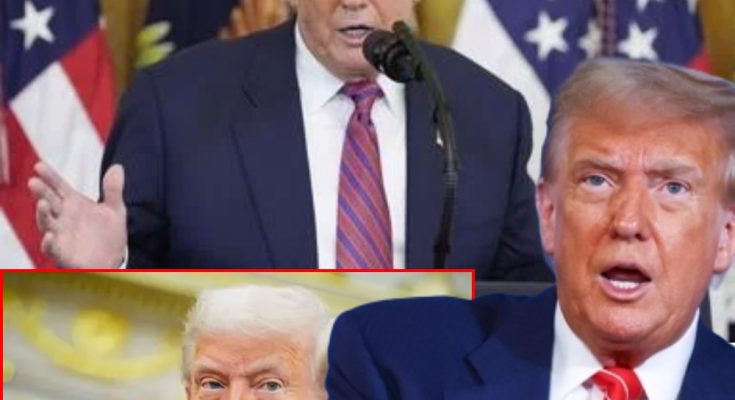
A federal appeals court has ruled that most of President Donald Trump’s sweeping global tariffs are unlawful, potentially dealing a significant blow to the president’s effort to reshape the country’s trade policy unilaterally.
In a 7-4 decision, the U.S. Court of Appeals for the Federal Circuit rejected Trump’s authority to carry out most of his tariffs, agreeing with the lower court that Trump’s actions were “invalid as contrary to law.” However, the court delayed the impact of its decision through mid-October to allow the Trump administration to appeal to the Supreme Court, as the tariffs remain in effect.
“Because we agree that [International Emergency Economic Powers Act’s] grant of presidential authority to ‘regulate’ imports does not authorize the tariffs imposed by the Executive Orders, we affirm,” the majority wrote.
The decision in effect tees up one of the most consequential legal questions for the Supreme Court about the scope of the president’s authority on trade policy.
After Oct. 14, the court will return the case to the lower court to decide how the Supreme Court’s recent decision limiting nationwide injunctions affects the decision.
Trump reacts to decision
In a post on his social media platform Friday evening, Trump rebuked the appeals court’s decision, warning that a court order blocking the tariffs “would literally destroy the United States of America.”
Previewing the legal challenge expected in the coming weeks, Trump called on the Supreme Court to rule that he has the power to impose tariffs unilaterally.
“Now, with the help of the United States Supreme Court, we will use them to the benefit of our Nation, and Make America Rich, Strong, and Powerful Again! Thank you for your attention to this matter,” Trump wrote.
What the decision says
In its decision Friday, the appeals court determined that only Congress, not the president alone, has the authority to impose tariffs, setting up a high-profile legal question for the Supreme Court regarding the scope of the president’s power.
The decision centers on whether the authority to “regulate” imports, included in the International Emergency Economic Powers Act, means the president can issue tariffs on his own.
Seven of the 11 judges said that the rarely used law does not give Trump the power to implement either his “reciprocal” tariffs or the “trafficking” tariffs imposed on Canada, Mexico and China aimed at stopping the flow of fentanyl across U.S. borders, writing that “tariffs are a core Congressional power.”
“We discern no clear congressional authorization by IEEPA for tariffs of the magnitude of the Reciprocal Tariffs and Trafficking Tariffs,” the majority wrote. “Given these considerations, we conclude Congress, in enacting IEEPA, did not give the President wide-ranging authority to impose tariffs of the nature of the Trafficking and Reciprocal Tariffs simply by the use of the term ‘regulate . . . importation.’”
A subset of four judges from the majority took the decision even further, determining that IEEPA does not give Trump the power to issue any tariffs, not just the two types of tariffs in question.
“The Government’s interpretation of IEEPA would be a functionally limitless delegation of Congressional taxation authority,” they wrote.
In a minority opinion, four other judges disagreed, suggesting Trump’s declaration of a national emergency is enough of an “unusual and extraordinary threat” to justify the tariffs.



